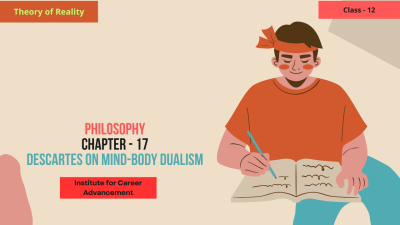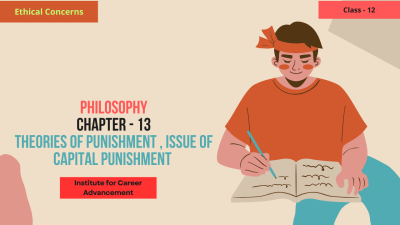Courses


 Compare
Compare
In Jainism, Anekantavada and Syadvada are core philosophical principles that emphasize the complexity of truth and the importance of understanding reality from multiple perspectives. 1. Anekantavada (Doctrine of Multiple Perspectives): Anekantavada is the Jain principle of non-absolutism. It asserts that reality is multifaceted, and different perspectives offer valid insights into the same truth. According to this doctrine, no single viewpoint can fully capture the complete truth of any situation, because every truth is seen differently from different angles. The concept suggests that we must recognize and respect diverse opinions and viewpoints. It encourages tolerance and open-mindedness in understanding the world. Example: A mountain might appear differently to someone at the top, someone at the base, and someone from a distance. Each perspective provides partial truth, but none captures the entire reality. 2. Syadvada (Doctrine of Conditional Predication): Syadvada is the logical extension of Anekantavada, often called the Doctrine of Sevenfold Predication. It asserts that statements about truth should be made conditionally, recognizing that different aspects of a situation or object may apply depending on the perspective. In Syadvada, truth is expressed in seven different ways, each depending on specific conditions: Syadasti (It is, from a certain point of view) Syadnasti (It is not, from a certain point of view) Syadasti nasti (It is and it is not, from a certain point of view) Syadavaktavyam (It cannot be expressed, from a certain point of view) Syadasti avaktavyam (It is and cannot be expressed, from a certain point of view) Syadnasti avaktavyam (It is not and cannot be expressed, from a certain point of view) Syadasti nasti avaktavyam (It is and is not, and cannot be expressed, from a certain point of view) This emphasizes that any statement about an object or truth is conditional, reflecting its complexity and multiple facets. Importance in Jainism: Anekantavada and Syadvada teach humility in philosophical discussions, urging individuals to avoid dogmatism and recognize that others' perspectives can hold truth. They promote tolerance, peace, and understanding, as they encourage acknowledging the limits of one’s own perspective and valuing diversity of thought. In Class 12, these concepts help students appreciate the philosophical depth of Jainism and its emphasis on non-violence (ahimsa) and respect for different viewpoints. জৈনধর্মে, অনেকান্তবাদ এবং স্যদ্বদ হল মূল দার্শনিক নীতি যা সত্যের জটিলতা এবং একাধিক দৃষ্টিকোণ থেকে বাস্তবতা বোঝার গুরুত্বের উপর জোর দেয়। 1টি। অনেকান্তবাদ (একাধিক দৃষ্টিভঙ্গির মতবাদ) অনেকান্তবাদ হল অ-দ্রবণীয়তার জৈন নীতি। এটি দাবি করে যে বাস্তবতা বহুমুখী, এবং বিভিন্ন দৃষ্টিভঙ্গি একই সত্যের বৈধ অন্তর্দৃষ্টি প্রদান করে। এই মতবাদ অনুসারে, কোনও একক দৃষ্টিভঙ্গি কোনও পরিস্থিতির সম্পূর্ণ সত্যকে সম্পূর্ণরূপে ধারণ করতে পারে না, কারণ প্রতিটি সত্যকে বিভিন্ন কোণ থেকে ভিন্নভাবে দেখা হয়। ধারণাটি পরামর্শ দেয় যে আমাদের অবশ্যই বিভিন্ন মতামত এবং দৃষ্টিভঙ্গিকে স্বীকৃতি ও সম্মান করতে হবে। এটি বিশ্বকে বোঝার ক্ষেত্রে সহনশীলতা এবং মুক্তমনা মনোভাবকে উৎসাহিত করে। উদাহরণস্বরূপঃ একটি পর্বত শীর্ষে থাকা কারও কাছে, গোড়ায় থাকা কারও কাছে এবং দূর থেকে আসা কারও কাছে ভিন্নভাবে প্রদর্শিত হতে পারে। প্রতিটি দৃষ্টিভঙ্গি আংশিক সত্য সরবরাহ করে, তবে কোনওটিই পুরো বাস্তবতা ধারণ করে না। 2. স্যদ্বদ (শর্তসাপেক্ষ পূর্বাভাসের মতবাদ) সাতবাদ হল অনেকান্তবাদের যৌক্তিক সম্প্রসারণ, যাকে প্রায়শই সাতগুণ অনুমানের মতবাদ বলা হয়। এটি জোর দিয়ে বলে যে সত্য সম্পর্কে বিবৃতিগুলি শর্তসাপেক্ষভাবে দেওয়া উচিত, এটি স্বীকার করে যে কোনও পরিস্থিতি বা বস্তুর বিভিন্ন দিক দৃষ্টিভঙ্গির উপর নির্ভর করে প্রযোজ্য হতে পারে। স্যাদবাদে, সত্য সাতটি ভিন্ন উপায়ে প্রকাশ করা হয়, প্রতিটি নির্দিষ্ট অবস্থার উপর নির্ভর করেঃ স্যদস্তি (এটি একটি নির্দিষ্ট দৃষ্টিকোণ থেকে) স্যাদনস্তি (এটি একটি নির্দিষ্ট দৃষ্টিকোণ থেকে নয়) স্যদস্তি নাস্তি (এটি একটি নির্দিষ্ট দৃষ্টিকোণ থেকে এবং এটি নয়) স্যদাবক্তব্যম (একটি নির্দিষ্ট দৃষ্টিকোণ থেকে এটি প্রকাশ করা যাবে না) স্যদস্তি অবক্তব্যম (এটি একটি নির্দিষ্ট দৃষ্টিকোণ থেকে প্রকাশ করা যায় না) স্যাদনস্তি অবক্তব্যম (এটি একটি নির্দিষ্ট দৃষ্টিকোণ থেকে প্রকাশ করা যায় না এবং করা যায় না) সয়দস্তি নাস্তি অবক্তবিয়াম (এটি একটি নির্দিষ্ট দৃষ্টিকোণ থেকে আছে এবং নেই, এবং প্রকাশ করা যায় না) এটি জোর দেয় যে কোনও বস্তু বা সত্য সম্পর্কে যে কোনও বিবৃতি শর্তাধীন, এর জটিলতা এবং একাধিক দিক প্রতিফলিত করে। জৈনধর্মের গুরুত্বঃ অনেকান্তবাদ এবং স্যদ্বদ দার্শনিক আলোচনায় নম্রতা শিক্ষা দেয়, ব্যক্তিবর্গকে হঠকারিতা এড়াতে এবং অন্যের দৃষ্টিভঙ্গি সত্য ধারণ করতে পারে তা স্বীকার করার আহ্বান জানায়। তারা সহনশীলতা, শান্তি এবং বোধগম্যতাকে উৎসাহিত করে, কারণ তারা নিজের দৃষ্টিভঙ্গির সীমা স্বীকার করতে এবং চিন্তার বৈচিত্র্যকে মূল্য দিতে উৎসাহিত করে। দ্বাদশ শ্রেণিতে, এই ধারণাগুলি শিক্ষার্থীদের জৈন ধর্মের দার্শনিক গভীরতা এবং অহিংসার (অহিংসা) উপর জোর দেওয়া এবং বিভিন্ন দৃষ্টিভঙ্গির প্রতি শ্রদ্ধা উপলব্ধি করতে সহায়তা করে।
0 Lessons
Hours

 Compare
Compare
The Bhagavad Gita on the Immortality of Soul and Rebirth in Class 12 explores key concepts related to the eternal nature of the soul and the cycle of birth, death, and rebirth (samsara). The Bhagavad Gita, a fundamental text of Hindu philosophy, presents the idea that the soul (atman) is immortal and does not die when the physical body perishes. Instead, the soul undergoes rebirth in different bodies based on past actions (karma). Through the teachings of Lord Krishna to the warrior Arjuna, the text emphasizes that the soul is beyond the material body and remains unchanged through various lifetimes. This understanding leads to a greater sense of detachment and duty (dharma), helping individuals face life's challenges without fear of death. The Gita explains that the process of rebirth is influenced by one's karma and spiritual evolution, ultimately leading to the goal of moksha (liberation from the cycle of birth and death). In this topic, students will study the philosophical ideas presented in the Bhagavad Gita, particularly regarding the nature of the soul, the significance of rebirth, and the path to liberation. দ্বাদশ শ্রেণিতে আত্মা ও পুনর্জন্মের অমরত্ব সম্পর্কিত ভগবদ গীতা আত্মার শাশ্বত প্রকৃতি এবং জন্ম, মৃত্যু ও পুনর্জন্মের চক্র (সংসার) সম্পর্কিত মূল ধারণাগুলি অন্বেষণ করে। হিন্দু দর্শনের একটি মৌলিক গ্রন্থ ভগবদ গীতা এই ধারণাটি উপস্থাপন করে যে আত্মা (আত্মা) অমর এবং শারীরিক দেহ ধ্বংস হলে মারা যায় না। পরিবর্তে, আত্মা অতীত কর্মের (কর্ম) উপর ভিত্তি করে বিভিন্ন দেহে পুনর্জন্ম লাভ করে। যোদ্ধা অর্জুনকে ভগবান কৃষ্ণের শিক্ষার মাধ্যমে, গ্রন্থটি জোর দেয় যে আত্মা বস্তুগত দেহের বাইরে এবং বিভিন্ন জীবনকালে অপরিবর্তিত থাকে। এই বোধগম্যতা বিচ্ছিন্নতা এবং কর্তব্যের (ধর্ম) বৃহত্তর বোধের দিকে পরিচালিত করে যা ব্যক্তিদের মৃত্যুর ভয় ছাড়াই জীবনের চ্যালেঞ্জগুলির মুখোমুখি হতে সহায়তা করে। গীতা ব্যাখ্যা করে যে পুনর্জন্মের প্রক্রিয়াটি একজনের কর্ম এবং আধ্যাত্মিক বিবর্তন দ্বারা প্রভাবিত হয়, যা শেষ পর্যন্ত মোক্ষের (জন্ম ও মৃত্যুর চক্র থেকে মুক্তি) লক্ষ্যে নিয়ে যায়। এই বিষয়ে, শিক্ষার্থীরা ভগবদ গীতায় উপস্থাপিত দার্শনিক ধারণাগুলি, বিশেষত আত্মার প্রকৃতি, পুনর্জন্মের তাৎপর্য এবং মুক্তির পথ সম্পর্কে অধ্যয়ন করবে।
0 Lessons
Hours

 Compare
Compare
The Nyaya Proofs for the Existence of God in Class 12 refer to the logical and philosophical arguments presented by the Nyaya school of thought in Indian philosophy to establish the existence of God. The Nyaya school emphasizes logic and reasoning as tools to understand reality. According to Nyaya, the existence of God can be inferred through various logical proofs, which include: Cosmological Argument: Nyaya argues that the universe, with its order and design, must have been created by a cause (i.e., God). The existence of a purposive, orderly universe suggests a divine creator. Teleological Argument: The complexity and purposeful design in nature indicate the presence of an intelligent designer—God. Moral Argument: The presence of moral laws and values in the world points to the existence of a moral lawgiver—God. Nyaya proofs rely on valid inference (anumāna) and observation to demonstrate the necessity of a divine cause behind the universe’s existence and order. These proofs are grounded in logic, aiming to show that belief in God is rational and coherent. দ্বাদশ শ্রেণীতে ঈশ্বরের অস্তিত্বের জন্য ন্যায় প্রমাণগুলি ঈশ্বরের অস্তিত্ব প্রতিষ্ঠার জন্য ভারতীয় দর্শনে ন্যায় চিন্তাধারার দ্বারা উপস্থাপিত যৌক্তিক এবং দার্শনিক যুক্তিগুলিকে বোঝায়। ন্যায় ধারা বাস্তবতা বোঝার হাতিয়ার হিসাবে যুক্তি এবং যুক্তির উপর জোর দেয়। ন্যায়ের মতে, বিভিন্ন যৌক্তিক প্রমাণের মাধ্যমে ঈশ্বরের অস্তিত্ব অনুমান করা যেতে পারে, যার মধ্যে রয়েছেঃ মহাজাগতিক যুক্তিঃ Nyaya যুক্তি যে মহাবিশ্ব, তার আদেশ এবং নকশা সঙ্গে, একটি কারণ দ্বারা তৈরি করা হয়েছে (i.e., ঈশ্বর) একটি উদ্দেশ্যমূলক, সুশৃঙ্খল মহাবিশ্বের অস্তিত্ব একজন ঐশ্বরিক সৃষ্টিকর্তার ইঙ্গিত দেয়। টেলিলজিক্যাল আর্গুমেন্টঃ প্রকৃতির জটিলতা এবং উদ্দেশ্যমূলক নকশা একজন বুদ্ধিমান ডিজাইনার-ঈশ্বরের উপস্থিতি নির্দেশ করে। নৈতিক যুক্তিঃ বিশ্বে নৈতিক আইন ও মূল্যবোধের উপস্থিতি নৈতিক আইনপ্রণেতা-ঈশ্বরের অস্তিত্বের দিকে ইঙ্গিত করে। ন্যায় প্রমাণগুলি মহাবিশ্বের অস্তিত্ব এবং শৃঙ্খলার পিছনে একটি ঐশ্বরিক কারণের প্রয়োজনীয়তা প্রদর্শনের জন্য বৈধ অনুমান (অনুমানা) এবং পর্যবেক্ষণের উপর নির্ভর করে। এই প্রমাণগুলি যুক্তির উপর ভিত্তি করে তৈরি, যার লক্ষ্য হল ঈশ্বরের প্রতি বিশ্বাস যুক্তিসঙ্গত এবং সুসঙ্গত।
0 Lessons
Hours

 Compare
Compare
Descartes on Mind-Body Dualism is a key concept in philosophy studied in Class 12. René Descartes, a French philosopher, proposed the idea of dualism, which suggests that the mind and body are two distinct substances. According to Descartes: Mind (Res Cogitans): The mind is the thinking, non-material substance responsible for consciousness, thoughts, reasoning, and emotions. It is immaterial, indivisible, and exists independently of the body. Body (Res Extensa): The body is the physical, material substance that occupies space and is subject to physical laws. It is divisible, extended in space, and interacts with the material world. Descartes famously stated, "Cogito, ergo sum" ("I think, therefore I am"), emphasizing that the mind is the essence of human existence and separate from the physical body. Key Points: Mind-body dualism: The separation of the mental and physical realms. Interaction: Descartes proposed that the mind and body interact, especially in the pineal gland, where mental and physical processes are believed to meet. Philosophical impact: Descartes' ideas laid the groundwork for future discussions in philosophy, psychology, and neuroscience, particularly concerning the nature of consciousness and the mind-body relationship. মন-দেহের উপর ডেসকার্টেস দ্বৈতবাদ দ্বাদশ শ্রেণিতে অধ্যয়নরত দর্শনের একটি মূল ধারণা। ফরাসি দার্শনিক রেনে ডেসকার্টেস দ্বৈতবাদের ধারণাটি প্রস্তাব করেছিলেন, যা পরামর্শ দেয় যে মন এবং শরীর দুটি স্বতন্ত্র পদার্থ। ডেসকার্টেসের মতেঃ মন (রেস কোগিটানস) মন হল চিন্তা, অ-বস্তুগত পদার্থ যা চেতনা, চিন্তা, যুক্তি এবং আবেগের জন্য দায়ী। এটি অবাস্তব, অবিভাজ্য এবং দেহ থেকে স্বাধীনভাবে বিদ্যমান। শরীর (রেস এক্সটেনসা) শরীর হল ভৌত, বস্তুগত পদার্থ যা স্থান দখল করে এবং ভৌত নিয়মের অধীন। এটি বিভাজ্য, মহাকাশে প্রসারিত এবং বস্তুগত জগতের সাথে মিথস্ক্রিয়া করে। ডেসকার্টেস বিখ্যাতভাবে বলেছিলেন, "কোগিটো, এরগো সাম" ("আমি মনে করি, তাই আমি আছি") জোর দিয়ে বলেছিলেন যে মন হল মানুষের অস্তিত্বের সারমর্ম এবং শারীরিক দেহ থেকে পৃথক। মূল বিষয়গুলোঃ মন-দেহ দ্বৈতবাদঃ মানসিক এবং শারীরিক ক্ষেত্রের বিচ্ছেদ। ইন্টারঅ্যাকশনঃ ডেসকার্টেস প্রস্তাব করেছিলেন যে মন এবং শরীর ইন্টারঅ্যাক্ট করে, বিশেষত পিনিয়াল গ্রন্থি, যেখানে মানসিক এবং শারীরিক প্রক্রিয়াগুলি মিলিত হয় বলে বিশ্বাস করা হয়। দার্শনিক প্রভাবঃ ডেসকার্টেসের ধারণাগুলি দর্শন, মনোবিজ্ঞান এবং স্নায়ুবিজ্ঞানের ভবিষ্যতের আলোচনার ভিত্তি স্থাপন করেছিল, বিশেষত চেতনার প্রকৃতি এবং মন-দেহের সম্পর্ক সম্পর্কিত।
0 Lessons
Hours

 Compare
Compare
In Class 12, the topic "Proofs for the Existence of God" typically includes philosophical arguments presented by various thinkers to demonstrate God's existence. These proofs include: Cosmological Argument: Argues that the existence of the universe requires a first cause, which is God. Teleological Argument: Suggests that the order and design in the world point to the existence of an intelligent designer (God). Ontological Argument: Proposes that the very concept of a perfect being (God) implies its existence. Moral Argument: Claims that the presence of moral values and duties points to the existence of a moral lawgiver (God). Argument from Religious Experience: Asserts that personal experiences of God and the divine in different religious traditions support God's existence. These arguments aim to show that belief in God is rational and grounded in logical reasoning. দ্বাদশ শ্রেণীতে, "ঈশ্বরের অস্তিত্বের প্রমাণ" বিষয়টিতে সাধারণত ঈশ্বরের অস্তিত্ব প্রদর্শনের জন্য বিভিন্ন চিন্তাবিদদের দ্বারা উপস্থাপিত দার্শনিক যুক্তি অন্তর্ভুক্ত থাকে। এই প্রমাণগুলির মধ্যে রয়েছেঃ মহাজাগতিক যুক্তিঃ যুক্তি দেয় যে মহাবিশ্বের অস্তিত্বের জন্য একটি প্রথম কারণ প্রয়োজন, যা হল ঈশ্বর। টেলোলজিক্যাল আর্গুমেন্টঃ পরামর্শ দেয় যে বিশ্বের ক্রম এবং নকশা একটি বুদ্ধিমান ডিজাইনার (ঈশ্বর) এর অস্তিত্ব নির্দেশ করে সত্তাতাত্ত্বিক যুক্তিঃ প্রস্তাব করে যে একটি নিখুঁত সত্তা (ঈশ্বর) এর ধারণাটি তার অস্তিত্বকে বোঝায়। নৈতিক যুক্তিঃ দাবি করে যে নৈতিক মূল্যবোধ এবং কর্তব্যের উপস্থিতি নৈতিক আইনপ্রণেতার (ঈশ্বর) অস্তিত্বের দিকে ইঙ্গিত করে। ধর্মীয় অভিজ্ঞতা থেকে যুক্তিঃ দাবি করে যে বিভিন্ন ধর্মীয় ঐতিহ্যে ঈশ্বর এবং ঐশ্বরিকের ব্যক্তিগত অভিজ্ঞতা ঈশ্বরের অস্তিত্বকে সমর্থন করে। এই যুক্তিগুলির লক্ষ্য হল ঈশ্বরের প্রতি বিশ্বাস যুক্তিসঙ্গত এবং যৌক্তিক যুক্তির উপর ভিত্তি করে।
0 Lessons
Hours

 Compare
Compare
Environmental Degradation in Class 12 refers to the deterioration of the natural environment due to human activities and natural processes. It includes the depletion of natural resources, pollution of air, water, and soil, deforestation, and loss of biodiversity. This degradation disrupts ecosystems and threatens the balance of nature, impacting both human health and the planet's sustainability. The topic highlights the causes, effects, and solutions to environmental degradation, emphasizing the need for sustainable development and environmental conservation to ensure a healthier and more sustainable future for all. দ্বাদশ শ্রেণীতে পরিবেশগত অবক্ষয় বলতে মানুষের ক্রিয়াকলাপ এবং প্রাকৃতিক প্রক্রিয়াগুলির কারণে প্রাকৃতিক পরিবেশের অবক্ষয়কে বোঝায়। এর মধ্যে রয়েছে প্রাকৃতিক সম্পদ হ্রাস, বায়ু, জল ও মাটি দূষণ, বন উজাড় এবং জীববৈচিত্র্য হ্রাস। এই অবক্ষয় বাস্তুতন্ত্রকে ব্যাহত করে এবং প্রকৃতির ভারসাম্যকে হুমকির মুখে ফেলে, যা মানুষের স্বাস্থ্য এবং গ্রহের স্থায়িত্ব উভয়কেই প্রভাবিত করে। বিষয়টি পরিবেশগত অবক্ষয়ের কারণ, প্রভাব এবং সমাধানগুলি তুলে ধরে, সকলের জন্য একটি স্বাস্থ্যকর এবং আরও টেকসই ভবিষ্যত নিশ্চিত করতে টেকসই উন্নয়ন এবং পরিবেশ সংরক্ষণের প্রয়োজনীয়তার উপর জোর দেয়।
0 Lessons
Hours

 Compare
Compare
Human Rights in Class 12 typically refer to the basic rights and freedoms that belong to every individual, regardless of nationality, ethnicity, gender, or religion. These rights are fundamental to human dignity and include the right to life, freedom of expression, education, and equality before the law. The concept of human rights is often discussed in the context of international laws, treaties, and organizations like the United Nations, which aim to protect and promote these rights globally. The subject may also cover the history of human rights struggles, key human rights violations, and the role of governments and NGOs in safeguarding these rights. দ্বাদশ শ্রেণিতে মানবাধিকার সাধারণত জাতীয়তা, জাতি, লিঙ্গ বা ধর্ম নির্বিশেষে প্রতিটি ব্যক্তির মৌলিক অধিকার এবং স্বাধীনতাকে বোঝায়। এই অধিকারগুলি মানুষের মর্যাদার জন্য মৌলিক এবং এর মধ্যে রয়েছে জীবনের অধিকার, মত প্রকাশের স্বাধীনতা, শিক্ষা এবং আইনের সামনে সমতা। মানবাধিকারের ধারণাটি প্রায়শই আন্তর্জাতিক আইন, চুক্তি এবং জাতিসংঘের মতো সংস্থার প্রেক্ষাপটে আলোচনা করা হয়, যার লক্ষ্য বিশ্বব্যাপী এই অধিকারগুলি রক্ষা করা এবং প্রচার করা। বিষয়টিতে মানবাধিকার সংগ্রামের ইতিহাস, মূল মানবাধিকার লঙ্ঘন এবং এই অধিকার রক্ষায় সরকার ও এনজিওর ভূমিকাও অন্তর্ভুক্ত থাকতে পারে।
0 Lessons
Hours

 Compare
Compare
Theories of Punishment are the philosophical foundations behind why and how punishment is administered in society. There are several key theories: Retributive Theory: This theory focuses on the idea of "just deserts," where punishment is seen as a deserved response to the crime committed. It seeks to ensure that the offender faces consequences proportionate to their crime. Deterrent Theory: The goal here is to prevent future crimes by making an example of the offender. The punishment is intended to discourage both the individual and others from committing similar offenses. Rehabilitative Theory: This approach emphasizes reforming the offender, helping them understand the wrongness of their actions, and reintegrating them into society as law-abiding citizens. Preventive Theory: The focus is on preventing future crimes by incapacitating the offender, such as through imprisonment, to ensure they cannot commit further offenses. Restorative Theory: This theory centers on repairing the harm caused by the crime, involving the offender, victim, and community in a process of healing and reconciliation. Issue of Capital Punishment refers to the debate over the use of the death penalty as a form of punishment. Arguments in favor include deterrence, retribution, and the belief that certain crimes warrant the ultimate penalty. Critics argue that it violates human rights, risks executing innocent people, and does not effectively deter crime. The issue remains highly controversial and varies across different legal systems worldwide. শাস্তির তত্ত্বগুলি হল সমাজে কেন এবং কীভাবে শাস্তি দেওয়া হয় তার পিছনে দার্শনিক ভিত্তি। বেশ কয়েকটি মূল তত্ত্ব রয়েছেঃ প্রতিশোধমূলক তত্ত্বঃ এই তত্ত্বটি "ন্যায়সঙ্গত মরুভূমি" ধারণার উপর দৃষ্টি নিবদ্ধ করে, যেখানে শাস্তি সংঘটিত অপরাধের যোগ্য প্রতিক্রিয়া হিসাবে দেখা হয়। এটি নিশ্চিত করতে চায় যে অপরাধীরা যেন তাদের অপরাধের অনুপাতে পরিণতির সম্মুখীন হয়। প্রতিরোধ তত্ত্বঃ এখানে লক্ষ্য হল অপরাধীর উদাহরণ তৈরি করে ভবিষ্যতের অপরাধ প্রতিরোধ করা। এই শাস্তির উদ্দেশ্য হল ব্যক্তি এবং অন্যদের একই ধরনের অপরাধ করা থেকে নিরুৎসাহিত করা। পুনর্বাসন তত্ত্বঃ এই দৃষ্টিভঙ্গি অপরাধীদের সংস্কারের উপর জোর দেয়, তাদের কর্মের ভুল বুঝতে সাহায্য করে এবং আইন-মান্যকারী নাগরিক হিসাবে তাদের সমাজে পুনরায় সংহত করে। প্রতিরোধমূলক তত্ত্বঃ অপরাধীকে অক্ষম করে ভবিষ্যতের অপরাধ প্রতিরোধের দিকে মনোনিবেশ করা হয়, যেমন কারাবাসের মাধ্যমে, যাতে তারা আরও অপরাধ করতে না পারে তা নিশ্চিত করার জন্য। পুনরুদ্ধারমূলক তত্ত্বঃ এই তত্ত্বটি অপরাধী, ভুক্তভোগী এবং সম্প্রদায়কে নিরাময় ও পুনর্মিলনের প্রক্রিয়ায় জড়িত করে অপরাধ দ্বারা সৃষ্ট ক্ষতি মেরামতের উপর কেন্দ্রীভূত। মৃত্যুদণ্ডের বিষয়টি মৃত্যুদণ্ডকে শাস্তির একটি রূপ হিসাবে ব্যবহার নিয়ে বিতর্ককে বোঝায়। পক্ষে যুক্তিগুলির মধ্যে রয়েছে প্রতিরোধ, প্রতিশোধ এবং এই বিশ্বাস যে নির্দিষ্ট কিছু অপরাধের জন্য চূড়ান্ত শাস্তি প্রয়োজন। সমালোচকরা যুক্তি দেন যে এটি মানবাধিকার লঙ্ঘন করে, নির্দোষ মানুষের মৃত্যুদণ্ড কার্যকর করার ঝুঁকি নেয় এবং কার্যকরভাবে অপরাধ দমন করে না। বিষয়টি অত্যন্ত বিতর্কিত রয়ে গেছে এবং বিশ্বব্যাপী বিভিন্ন আইনি ব্যবস্থায় পরিবর্তিত হয়।
0 Lessons
Hours

 Compare
Compare
Ambedkar's Critique of Caste and Untouchability focuses on Dr. B.R. Ambedkar's analysis of the caste system in India and its deep-rooted social injustices, particularly the system of untouchability. Ambedkar, a prominent social reformer and the principal architect of the Indian Constitution, critiqued the caste system for perpetuating inequality, discrimination, and exploitation of the lower castes, especially the Dalits. He argued that caste was not just a social hierarchy but a form of oppression, and untouchability was a tool used to maintain this oppression. Ambedkar advocated for the abolition of caste, the protection of Dalit rights, and the promotion of social equality through legal and social reforms. His work and ideas continue to inspire movements for social justice and human rights in India. আম্বেদকরের 'ক্রিটিক অফ কাস্ট অ্যান্ড আনটচাবিলিটি' বইটি Dr. B.R. কে কেন্দ্র করে রচিত। ভারতে বর্ণ ব্যবস্থা এবং এর গভীর শিকড়যুক্ত সামাজিক অবিচার, বিশেষত অস্পৃশ্যতার ব্যবস্থা সম্পর্কে আম্বেদকরের বিশ্লেষণ। বিশিষ্ট সমাজ সংস্কারক এবং ভারতীয় সংবিধানের প্রধান স্থপতি আম্বেদকর বৈষম্য, বৈষম্য এবং নিম্ন বর্ণের, বিশেষ করে দলিতদের শোষণের জন্য বর্ণ ব্যবস্থার সমালোচনা করেছিলেন। তিনি যুক্তি দিয়েছিলেন যে বর্ণ কেবল একটি সামাজিক শ্রেণিবিন্যাস নয়, নিপীড়নের একটি রূপ এবং অস্পৃশ্যতা এই নিপীড়ন বজায় রাখার একটি হাতিয়ার ছিল। আম্বেদকর বর্ণের বিলোপ, দলিত অধিকারের সুরক্ষা এবং আইনি ও সামাজিক সংস্কারের মাধ্যমে সামাজিক সাম্যের প্রচারের পক্ষে ছিলেন। তাঁর কাজ এবং ধারণাগুলি ভারতে সামাজিক ন্যায়বিচার এবং মানবাধিকারের জন্য আন্দোলনকে অনুপ্রাণিত করে চলেছে।
0 Lessons
Hours